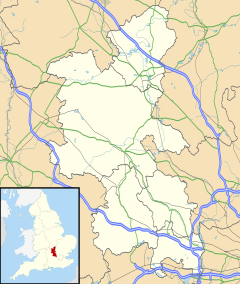Little Missenden
| Little Missenden | |
|---|---|
|
St. John the Baptist parish church |
|
| Little Missenden shown within Buckinghamshire | |
| Population | 2,234 (2011 Census) |
| OS grid reference | SU9298 |
| District | |
| Shire county | |
| Region | |
| Country | England |
| Sovereign state | United Kingdom |
| Post town | Amersham |
| Postcode district | HP7 |
| Police | Thames Valley |
| Fire | Buckinghamshire |
| Ambulance | South Central |
| EU Parliament | South East England |
| UK Parliament | |
Little Missenden is a village and civil parish in Buckinghamshire, England. It is in the Chiltern Hills, about three miles south east of Great Missenden, three miles west of Amersham.
The toponym "Missenden" is derived from the Old English for "valley where marsh plants grow". In the Domesday Book of 1086 the two villages are recorded as Missedene and Little Missenden is clearly identifiable by two hides owned between three landlords. One of these hides belonging to the Count of Mortain (around Town Farm) expanded after Domesday to become the manor of Holmer whence the village of Holmer Green was born. Other hamlets which are in the ancient parish of Little Missenden are Beamond End, Mop End, Spurlands End, Little Kingshill, Brays Green and Hyde Heath.
The main London-Aylesbury road used to run through the centre of Little Missenden and past the two pubs – The Red Lion and The Crown. In the early 19th century, a new by-pass road was built to the north and this now forms part of the modern A413 road.
Like much of Little Missenden village, the Saxon parish church of St John the Baptist was built next to the River Misbourne. The church was extended in several stages for at least 1000 years, the oldest part being built in circa 975 AD. The chancel dates to the 13th century, the North chapel was added in the 14th century, and the porch the following century. The exterior of the south aisle was rebuilt in brick in the 18th century. Some wall paintings survive inside the church, which were uncovered in 1931. The best preserved of these is a 13th-century depiction of St Christopher with a young Jesus.
...
Wikipedia

